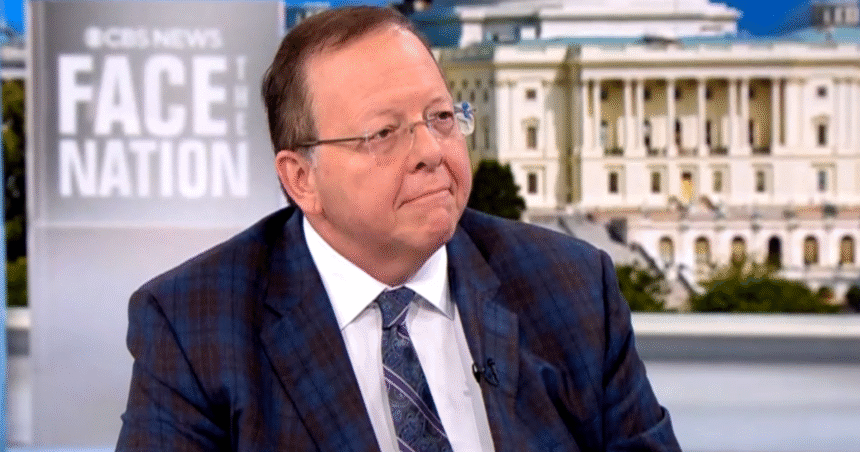The Rising Tide of Political Violence in America: Insights from Robert Pape
In a recent interview on “Face the Nation,” University of Chicago professor Robert Pape discussed the alarming trend of political violence in the United States, a phenomenon he describes as part of a broader “era of violent populism.” This trend, he argues, is characterized by increasing incidents of violence from both the political left and right, as well as a growing acceptance of such violence among the American populace.
Understanding the Current Landscape
Pape, who is the founding director of the Chicago Project on Security and Threats, highlighted several key incidents that illustrate this troubling trend. He referenced the assassination attempt on Nancy Pelosi in 2002, which narrowly missed her but injured her husband, as a pivotal moment. More recently, he pointed to the assassination of Democratic leaders, including Pennsylvania Governor Josh Shapiro and conservative commentator Charlie Kirk, as evidence of escalating violence.
According to Pape, the data collected by his research center over the past four years reveals a disturbing increase in support for political violence. In a survey conducted in May, the findings indicated that Americans are more willing than ever to justify violent actions in pursuit of political goals. This sentiment is not confined to one political ideology; both Democrats and Republicans exhibit alarming levels of support for violence as a means to achieve their objectives.
The Demographics Behind the Violence
One of the most significant factors contributing to this rise in political violence, Pape argues, is demographic change. He noted that the United States is transitioning from a white majority to a white minority democracy, a shift that has profound implications for the political landscape. In 1990, 76% of the U.S. population identified as non-Hispanic white; today, that figure stands at 57%. This demographic shift has been accompanied by a backlash from certain segments of the population, particularly among those who feel threatened by these changes.
Pape emphasized that this generational change has been in motion for over a decade, coinciding with the rise of Donald Trump and his focus on immigration issues. The professor posits that the political discourse surrounding immigration has evolved from merely addressing border security to advocating for the mass deportation of undocumented individuals. This shift has fueled resentment and fear among those who perceive their cultural and political dominance as being challenged.
The Role of the Internet
While Pape acknowledges the internet’s role as an “accelerant” of political violence, he cautions against viewing it as the root cause. He argues that the internet serves to amplify existing grievances and radicalize individuals, but it is not the primary driver of political violence. Instead, he points to broader social changes as the underlying factors that lead to increased political tensions.
This perspective aligns with historical patterns observed in other countries, where significant social changes have often resulted in political violence. Pape’s research suggests that the current climate in the U.S. mirrors these global trends, indicating that the nation is at a critical juncture.
The Need for Political Leadership
In light of these findings, Pape expressed concern about the future of American democracy. He emphasized that the responsibility for addressing this rising tide of violence lies with political leaders. He called for a united front among politicians from both sides of the aisle to publicly condemn political violence and model constructive behavior for their constituents.
Pape pointed to a recent instance where senators from both parties appeared together in a video to denounce violence, highlighting the importance of such actions in fostering a more civil political discourse. He argued that when political leaders engage in negative rhetoric about their opponents, it exacerbates tensions and contributes to a cycle of defiance and violence.
A Call to Action
The professor’s insights underscore the urgent need for a collective response to the challenges facing American democracy. He advocates for a summit involving key political figures, including President Trump and prominent governors, to publicly address the issue of political violence. Such a gathering could serve as a powerful statement against the normalization of violence in political discourse.
Pape’s research and observations paint a sobering picture of the current state of American politics. As the nation grapples with demographic shifts and increasing polarization, the potential for political violence looms large. However, Pape remains cautiously optimistic, asserting that the future is not predetermined. He believes that proactive measures and responsible leadership can help steer the country away from the brink of violence.
Conclusion
The insights shared by Professor Robert Pape during his interview on “Face the Nation” highlight a critical moment in American history. As the nation navigates complex demographic changes and rising political tensions, the potential for violence poses a significant threat to the democratic fabric of society. By fostering dialogue, promoting understanding, and condemning violence, political leaders can play a pivotal role in shaping a more peaceful and inclusive future. The responsibility lies not only with those in power but also with every citizen to engage in constructive discourse and work towards a more harmonious society.











